Vrubel could become a military man
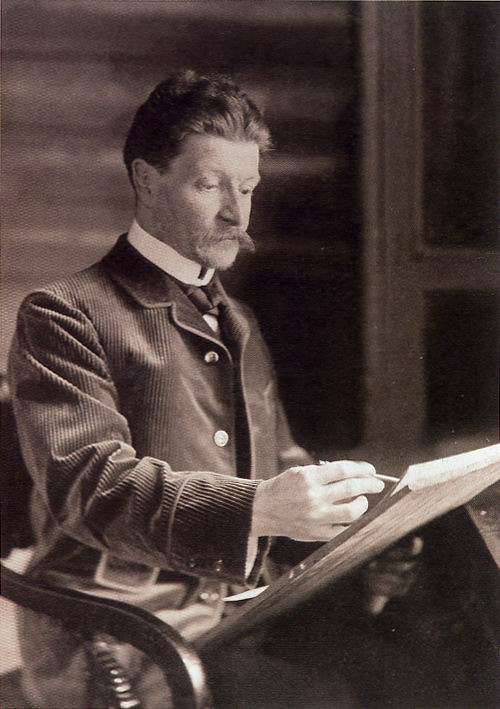
The entire male line of the brilliant artist Mikhail Vrubel is military. But he was the first who “departed” from this military line, writing great unsurpassed masterpieces: “Princess of Dreams”, “Pan”, “Demon sitting” and others. No one of his kind ever before or after will not repeat the path of Michael. This strange offshoot from the military traditions presented to the descendants of the great artist, towards the end of his life, from the incredible creative exertion that had lost its mind. This craving for drawing was not born immediately and was largely due to a strange coincidence of circumstances. And what if he became a soldier? After all, his grandfather, father, put their lives at much greater risk in military operations, but were able to maintain their mental health.
Thanks to the army, the family name Vrubel became widely known to the then Russian society.
Mikhail’s grandfather, Mikhail Antonovich, according to official figures, from April 11, 1843 received the rank of major general, and from December 9, 1857 he became lieutenant general. After which he was sent to the Astrakhan region, for 10 years there he regularly served as a punish chieftain. And the province was headed by the commander of the Caspian flotilla, the legendary Admiral Gregory Basargin. Their two houses were located opposite each other. Two military generals, of course, became friends. This friendship has grown into kinship. Mikhail Antonovich was growing up a son, and Grigory Basargin - a daughter. Two top officials in the province and two of their grown children - why not a good marriage?
The father of the future genius, Alexander Mikhailovich, continued his father’s military career, graduated from the cadet corps, entered the Tengin infantry regiment, which was part of the Caucasian corps, participated in various operations, and received a medal for his bravery.
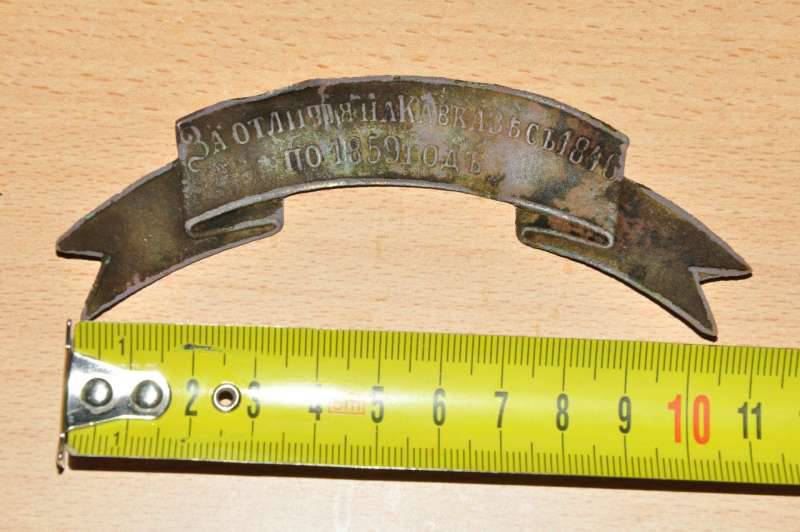
“Both officers and soldiers of the Tenginsky regiment, tempered in battles with the Swedes and the French, were now learning from their Suzdal comrades how to fight a war with the local enemy, the Caucasian highlander,” notes the regimental life.
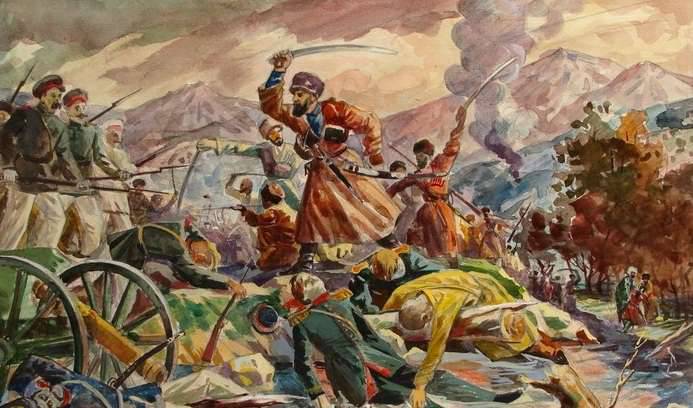
Everything was new here: high mountains, deep, wild gorges and dangerous paths on them, behind every canoe, behind every tree one had to expect an enemy who always had a well-aimed bullet in reserve.
Highlanders rarely engaged in battle on open plains. Usually in the mountains and forests they organized blockages, ambushes, and there was no detachment that they would not meet and did not see off sometimes rare, and most often strong weapons by fire. It required sharp eyesight and subtle hearing, caution and endurance, the ability to act together and alone, attention to the most insignificant objects, a thorough knowledge of the enemy’s habits and the ability to use them, to outwit.
The tengin service at the posts was not an easy one. They lived in damp, cold dugouts, lonely, far from the villages, and almost constantly carried guard service. It was especially difficult in the winter when the water level in the Kuban River fell, and the Highlanders could ford anywhere. Then, at the slightest mistake on the border, the mountaineers broke through to some village, robbed and killed the inhabitants, stole cattle, captured women and children.
High earthen ramparts were erected in the villages, at the corners of which guns were placed: sentries walked day and night at the gates and near the guns. It was strictly forbidden to go beyond the shaft without weapons.
The battalion which protected the environs of Kislovodsk was the hardest hit. Noble people came here for treatment. And often the Highlanders tracked them down, took them captive and demanded a large ransom for them. With the same purpose, attacks were carried out directly on Kislovodsk fortifications. They demanded special vigilance from Tinga companies. In case of danger, it was ordered to sound the alarm in the villages, light signal fires. And then from all over to the dangerous place the units of soldiers and Cossacks hurried.
That was how Tengins served in the Caucasus, and Alexander Mikhailovich Vrubel, too. He returns with triumph to his hometown of Astrakhan, takes the best girlfriend (neighbor, daughter of the admiral) as his wife, and, having received a new appointment, leaves for the duty station. Children are born. Michael was born 17 March 1856, in the city of Omsk, where his father continued his service as a senior staff adjutant of the Separate Siberian Corps. Michael grew up weakened by a child and learned to walk only by three years. By this time, his mother died of tuberculosis. Due to the same disease, his younger brother also died.
All childhood Misha - is a series of constant journeys from city to city on the duty of his father. From Omsk, his father returned to Astrakhan orphaned, his wife, because of the dank northern climate and the weakening after childbirth, fell seriously ill and died. So Misha was left without a mother. Father in the rank of colonel again transferred to command the Saratov provincial battalion. And again it was necessary to pack the bags and take off.
Astrakhan, Saratov, Odessa, Kiev and the majestic St. Petersburg. The dank, foggy spirit of this city will exacerbate the feeling of loneliness in it. His father invites him to embark on a military journey, but Mikhail categorically refuses and seeks salvation from aching longing in literature, music, stories, natural science, all this will be serious, but not that.
The father, knowing the restless soul of his son, tries to call him to military service again - there “they will quickly put his head in place.” But Michael has already found a way out for himself - painting. This move was disastrous. Although initially everything is going well. He tries different techniques. Pastel. Watercolor. Pencil. Female portraits are increasingly beginning to appear in folders with his numerous sketches. For the time being, only the features of future mystical images full of tragedy are guessed in them. He writes mostly from memory, fascinated by even the smallest details. He wasn’t 10 old when he reproduced Michelangelo’s “Last Judgment” in all details. Just once saw her copy in the Saratov church. Vrubel politely heeded his father's advice and entered the law faculty of St. Petersburg University. But he did not leave the painting either, his schoolmates are the future great devotees Valentin Serov, Vasily Polenov, Ilya Repin. But he is very different from all academics. The space of his canvases he inhabits the creatures of the invisible world. His fascinating mystery. Strange, unearthly and disastrous beauty.
Insightful professor Chistyakov saw his unique talent, and when his old friend Adrian Prakhov approached him with a request to recommend someone from the most capable students to work on the reconstruction of temples near Kiev, including the Church of St. Cyril, Chistyakov without hesitation presents him Vrubel with with the words: "Better and more talented to fulfill your order, I can not recommend anyone."
Vrubel for the first time in Kiev. He asks a passer-by how to get to the Church of St. Cyril, he still does not know that the church is located in the territory of a psychiatric hospital. And while he does not know the intrigues of the evil rock, only the subconscious will tell him the terrible pictures of the future. When in this church he begins to work on the fresco “The Descent of the Holy Spirit”, he will allow himself the audacity in the image of the holy Apostle Luke to portray himself. All eyes are open, except for Luke. Mikhail Alexandrovich still does not know that after years of 25 he will completely go blind. As you can see, mystics and fatal coincidences both in his fate and in his art are more than enough. But for now, he is still a newly-graduated graduate of the Academy of Arts under the care of Professor Prakhov, who kindly sheltered him in his house and even introduced him to Emilia’s wife.
And you need to be a perfect blind man, so as not to notice with whom he painted the image of the Virgin Mary in his frescoes. All this is very annoying Prahova. And he invites him to go to Italy, to get acquainted with the work of the old masters. Vrubel leaves Kiev, but has no power to break free from the fetters of his passion. In trembling hands, he holds a letter to Emilia, in which she reports quite coldly that relations are out of the question. Fight for your love or prefer proud loneliness? He chooses nothing, just beats his chest with a knife to open the letters, which, though not killed him, but left a deep scar in the region of the heart. Returning to Kiev, on his own initiative, he proposes a series of watercolor sketches for the Vladimir Cathedral.
“My dear sir, your sketches, made with great art, nevertheless cannot be accepted. The divergence with the Orthodox iconographic canon is too great. ” And the painting of the Vladimir Cathedral was entrusted to another artist, Viktor Vasnetsov.
He is in emotional and creative decline, he faces a debt pit.
Everyone is sure that Vrubel in his 30 years is unhappy, but this period is considered the most fruitful in his work. He is happy that he has been writing his demon for a month. He searches for his image, works day and night, does not know rest, tortures himself. Rewrites one picture on top of another. Ruthlessly tears canvases, terrible headaches torment him, the space around is inexorably distorted, taking more and more bizarre forms and changing shades. And finally, here, a pensive figure, sits, hugging his knees, against the sunset and looking into the distance. And again, fate gives a chance.
He goes to visit his sick father and on the way back he decides to stay in Moscow for a few days, but the capital will drag him out, turn his head and forever tear off from Kiev. He meets Savva Mamontov, who draws attention to his unique talent. And although he does not like his painting at all, he helps to find the first serious order - a series of illustrations to the works of Lermontov. And with his light hand a demonic theme with a new force flashes bright colors on his canvases.
In the yard 1896 year. His murals are already going to decorate the halls of the All-Russian Industrial and Agricultural Exhibition held in Nizhny Novgorod, and suddenly, horror, a special commission of the St. Petersburg Academy of Arts rejects his works as non-artistic. The enterprising Mammoths risk playing on the scandal and exhibiting them in the pavilion at the main entrance, writing in huge letters on the roof: “Vrubel's panel, rejected by the Academy of Arts!” Success is assured.
Vrubel goes to the opera and meets there a new muse Nadezhda Zabella. The artist fell in love.
He makes a proposal to the singer. Inspired by love, he creates a triptych "Faust", "Margarita". It seems that the happiness is infinite, and the demon from the past life left him. But the pictures, rejected by the customer, and again unbearable headaches. Salvation in the works. He tries to distance himself from the obsessive demon, and a new fairy-tale image is born, and a new masterpiece appears - “The Swan Princess”.
In the fifth year of family life, Nadezhda gave birth to a son, named Savva after Mamontov. The baby has piercing blue eyes of the mother, and an ugly cleft lip. For Vrubel, this is a terrible misfortune, and he locks himself in the workshop, tries to find answers and again writes his demon. The most difficult thing is to find penetrating eyes, and once he finds them in a mirror, in his own reflection. This proud, malicious reluctance to accept defeat is already read on the canvas.
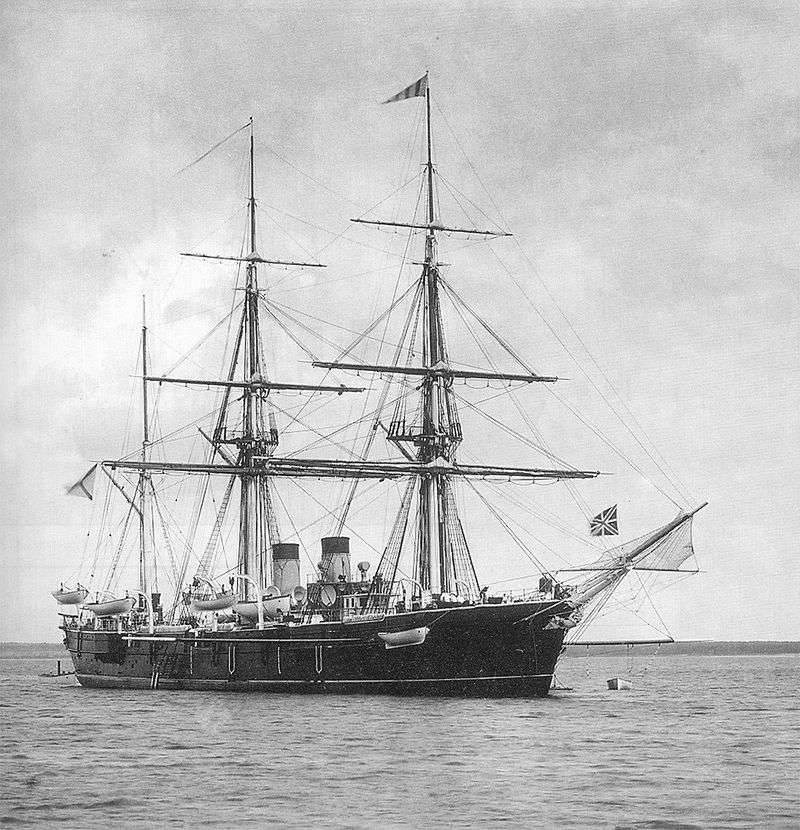
While Vrubel is tormented by creative torments, the artist's uncle, Vladimir G. Basargin, became a naval officer and managed to cross the Pacific Ocean on the corvettes “Rynda” and “Norvik” twice, to produce a number of important geographical surveys.
Later he will become commander of frigates and armadillos, flag-captain of Alexander III, will be enlisted in the imperial retinue, go to accompany Tsarevich Nicholas on a trip to the Far East, receive the rank of vice-admiral and appointment as adjutant general of His Majesty "(data from the book of Vera Domiteeva" Vrubel ").
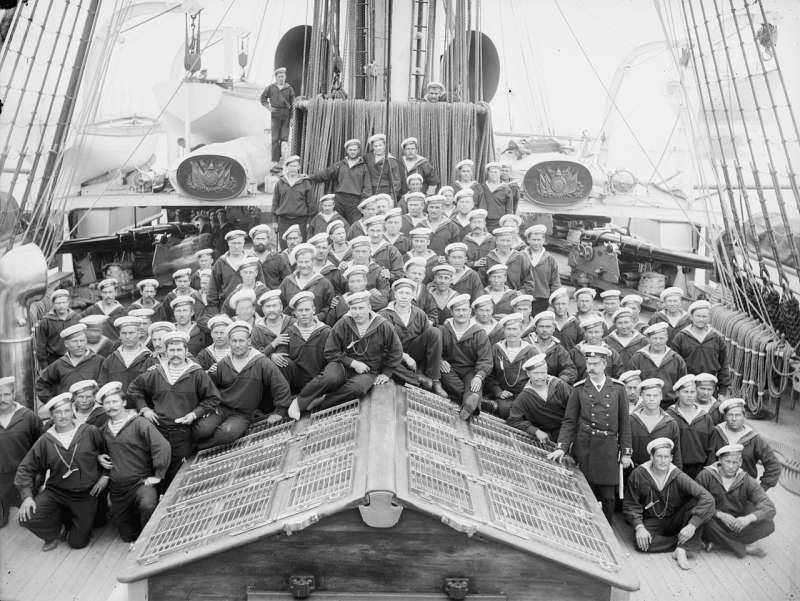
Uncle and nephew have only one thing in common - the sea, the water element. The rest - Michael's state of mind - worries relatives more and more.
More and more attacks of aggression are rolling on Vrubel, and then he goes outside. Once he beat a newspaper seller, then a cab driver, a valet in the theater. And now family happiness collapses. His wife takes him to the doctors. Those offer more sleep and rest. But that's the trouble. He just can not sleep. It is worth nap, as in a dream to him is a demon and demands to immediately stand up at the easel. In one of these visits, the demon orders you to name the picture “Icon,” but such a name at the exhibition will cause millions of contempt. The wife comes to a terrifying discovery: Mikhail is going crazy, and Dr. Bekhterev confirmed her fears. Spouses go to Kiev, on the way the son will catch a cold and die. And here it is, the same psychiatric clinic, which, by a strange coincidence, is located next to the Church of St. Cyril. She takes Vrubel in her arms. At this time, it is produced in academicians.
The series of mental illness was replaced by a series of magnificent paintings. In the biography of Vrubel, only one line says that mental illness retreated when he began to go blind and stopped painting, the trembling from the unreality of which, danger, a thin, monstrous edge that separates the abyss, a lot of indescribable feelings - that's a lot and much more long haunts the human soul when looking at his paintings. It's a pity. Perhaps his soul could be saved by army hardening.
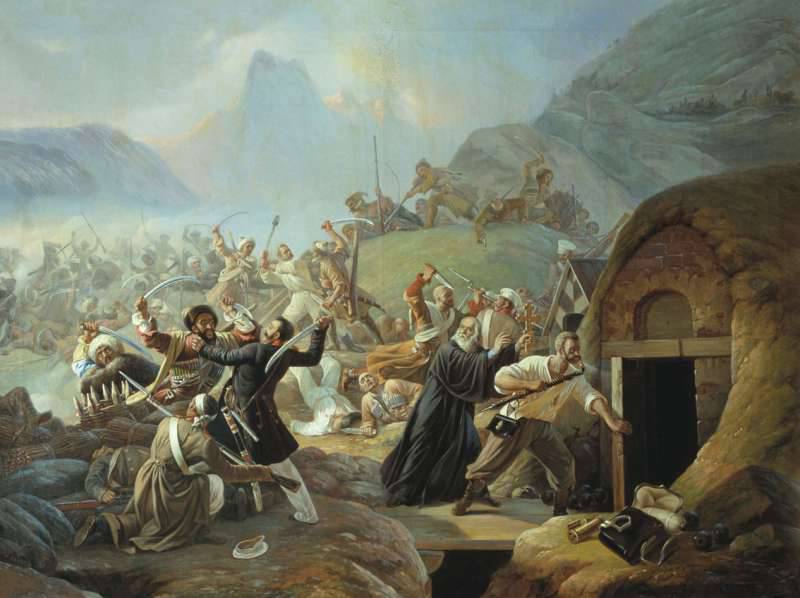
Information